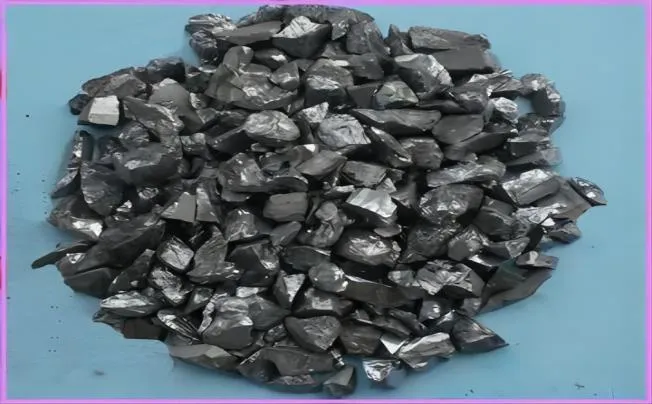BY  GENN
GENN
2024/10
Blog
What Are The Symptoms Of Silica Deficiency?
Silica, also known as silicon dioxide, is a mineral that plays a crucial role in various bodily functions. It is abundantly present in the earth’s crust and can be found in many natural sources such as quartz, sand, and certain vegetables.
Silica Deficiency and Bone Health
One of the primary manifestations of silica deficiency in bone health is osteoporosis or low bone density.
People with silica deficiency may experience accelerated bone loss due to insufficient collagen production, leading to a decreased ability for bones to regenerate properly. Individuals deficient in silica may also suffer from joint pain or stiffness.
Osteoporosis or low bone density
Osteoporosis is a serious condition characterized by reduced bone density and increased susceptibility to fractures. Silica deficiency can contribute significantly to the development of osteoporosis due to its pivotal role in collagen synthesis within bones.
Without sufficient silica levels, collagen production becomes compromised, ultimately leading to weakened structures that cannot adequately support body weight or withstand external pressures.
Joint pain or stiffness
Joint pain or stiffness is another common symptom associated with silica deficiency concerning bone health. Silica supports joint integrity by aiding in the production and maintenance of connective tissues like cartilage—a cushion-like substance found between joints—and tendons—a fibrous tissue connecting muscles with bones.
When there is an insufficient amount of silica available within the body’s systems, connective tissues may become weaker over time. This vulnerability impairs their ability to provide proper cushioning between joints efficiently—resulting in discomfort during movement accompanied by pain sensations around affected areas.
Silica Deficiency and Skin Health
Skin-related symptoms associated with silica deficiency
As silica supports collagen formation—a key component responsible for maintaining skin elasticity—its deficiency contributes to reduced firmness and suppleness over time. Furthermore, poor wound healing or sluggish recovery from common dermatological conditions may indicate an underlying silica insufficiency.
Silica aids in tissue repair by promoting cell regeneration while supporting immune response mechanisms within the affected area. Without adequate silica levels, these processes become impaired, potentially resulting in delayed wound closure or persistent inflammation.
To exacerbate matters further, inadequate silica intake may also lead to a compromised defense against harmful environmental factors such as UV radiation or pollutants. As a result of weakened tissue structures due to diminished collagen production caused by low silica levels, individuals may become more susceptible to damage from external stressors.
Premature aging signs such as wrinkles and sagging skin
One striking consequence of silica deficiency is accelerated aging signs on the skin’s surface—most prominently manifested through wrinkles and sagging tissue. Collagen fibers provide vital structural support that maintains youthful firmness while diminishing fine lines caused by repetitive facial movements over time.
When there is an inadequate supply of silica available for collagen synthesis within our bodies’ cells—particularly fibroblasts—the integrity of these vital protein networks becomes compromised. Consequently, this leads to visible signs of aging becoming more pronounced earlier than they would under ideal circumstances.
Additionally contributing to premature aging is another protein called elastin which relies heavily on proper silicon availability during its formation process—an intricate process known as elastogenesis—to ensure optimal functionality and resilience against stretching forces exerted on connective tissues like those found within our facial features. Silica’s absence hampers elastogenesis significantly; this interference leads directly not only towards increased susceptibility regarding wrinkle development but also inadvertently aids sagging scenarios where loose hanging folds replace once-taut regions affected most prominently around one’s cheeks or chin areas.
Silica Deficiency and Hair, Nails, and Teeth Health
Thinning hair or hair loss
The impact of silica deficiency on hair health can be distressing for individuals experiencing thinning strands or noticeable hair loss. Silica’s involvement in maintaining optimal blood circulation to the scalp is crucial for sustaining healthy follicles. Insufficient levels of this essential mineral can compromise this process leading to weakened hair growth patterns.
Brittle or weak nails
Weakened nail structure characterized by brittleness or peeling is often indicative of inadequate silica within the body’s system. Silica provides essential support for nail growth processes by contributing to their strength from within. Without an ample supply of this vital mineral, nail fragility becomes a prevalent issue.
Dental problems like tooth decay or gum disease
Inadequate levels of silica may contribute to compromised dental health as it impacts both tooth enamel integrity as well as gum tissue resilience due to its contribution towards collagen synthesis necessary for overall oral health.
Silica Deficiency’s Impact on Immune System Functioning
Symptoms Indicating Compromised Immune System Due to Silica Deficiency
A deficiency in silica can manifest itself through various symptoms that reflect a compromised immune system. One common indication is an increased susceptibility to frequent infections, such as colds, flu, or respiratory ailments.
Furthermore, individuals with insufficient silica levels may experience prolonged recovery periods from illnesses due to a weakened immune response. This delayed healing process can be particularly concerning as it leaves the body vulnerable to recurrent health issues.
Frequent Infections or Slow Recovery from Illnesses
Frequent infections or slow recovery from illnesses can be indicative of an underlying silica deficiency impacting immune function. When the body lacks adequate levels of silica, its ability to ward off pathogens becomes compromised.
Consequently, individuals may find themselves caught in a cycle of recurring infections and prolonged recuperation periods. The cumulative impact on overall well-being can be significant and may lead to chronic health challenges if left unaddressed.
Chronic Fatigue or Lack of Energy
Another symptom associated with weakened immune system functioning due to silica deficiency is chronic fatigue or persistent lack of energy. The constant battle against infections and suboptimal recovery processes places a substantial burden on the body’s energy reserves when silica levels are inadequate. This drain on energy resources can result in persistent feelings of exhaustion and reduced vitality, affecting daily functioning and quality of life.
Other
The Importance of Silica Supplementation
Silica plays a crucial role in maintaining healthy connective tissues, including tendons, ligaments, and blood vessels. When silica levels are low, these tissues may become weaker and more prone to injury or damage.
Individuals with silica deficiency might experience frequent sprains or strains, as well as easy bruising. Moreover, research suggests that silica deficiency could have an impact on cognitive function and mental health.
Silica is involved in the production of neurotransmitters that regulate mood and cognitive processes. Therefore, a lack of silica may contribute to symptoms such as brain fog, difficulty concentrating, or even mood disorders like depression or anxiety.
The Role of Diet in Preventing Silica Deficiency
Maintaining adequate levels of silica is vital for overall health and well-being. While supplementation may be necessary in some cases, it’s important to prioritize a diet rich in foods containing this essential mineral.
Natural sources of silica include whole grains such as oats and brown rice, leafy green vegetables like kale and spinach, beans and legumes such as chickpeas and lentils, as well as certain fruits like bananas and oranges. Additionally, it is worth noting that cooking methods can affect the amount of available silica in food.
Steaming or stir-frying vegetables helps retain more of their natural silica content compared to boiling them at high temperatures for extended periods. By incorporating these foods into your diet consistently while being mindful of cooking techniques, you can help prevent silica deficiency and maintain optimal health.










